Yash Maurya
Position: LLM Unlearning Benchmarks are Weak Measures of Progress
Oct 03, 2024


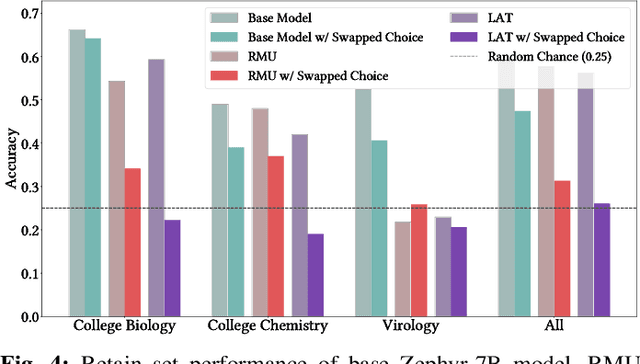
Abstract:Unlearning methods have the potential to improve the privacy and safety of large language models (LLMs) by removing sensitive or harmful information post hoc. The LLM unlearning research community has increasingly turned toward empirical benchmarks to assess the effectiveness of such methods. In this paper, we find that existing benchmarks provide an overly optimistic and potentially misleading view on the effectiveness of candidate unlearning methods. By introducing simple, benign modifications to a number of popular benchmarks, we expose instances where supposedly unlearned information remains accessible, or where the unlearning process has degraded the model's performance on retained information to a much greater extent than indicated by the original benchmark. We identify that existing benchmarks are particularly vulnerable to modifications that introduce even loose dependencies between the forget and retain information. Further, we show that ambiguity in unlearning targets in existing benchmarks can easily lead to the design of methods that overfit to the given test queries. Based on our findings, we urge the community to be cautious when interpreting benchmark results as reliable measures of progress, and we provide several recommendations to guide future LLM unlearning research.
Unified Locational Differential Privacy Framework
May 06, 2024Abstract:Aggregating statistics over geographical regions is important for many applications, such as analyzing income, election results, and disease spread. However, the sensitive nature of this data necessitates strong privacy protections to safeguard individuals. In this work, we present a unified locational differential privacy (DP) framework to enable private aggregation of various data types, including one-hot encoded, boolean, float, and integer arrays, over geographical regions. Our framework employs local DP mechanisms such as randomized response, the exponential mechanism, and the Gaussian mechanism. We evaluate our approach on four datasets representing significant location data aggregation scenarios. Results demonstrate the utility of our framework in providing formal DP guarantees while enabling geographical data analysis.
Guardrail Baselines for Unlearning in LLMs
Mar 05, 2024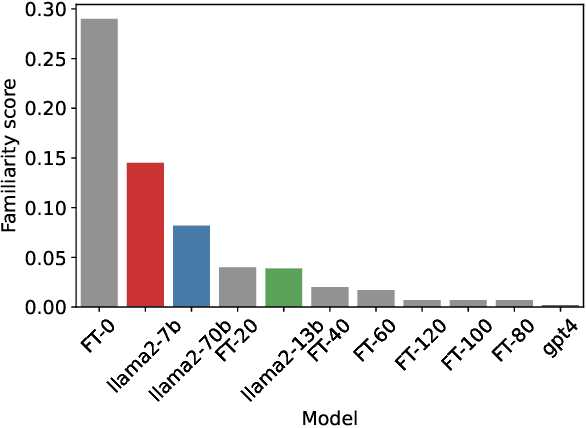


Abstract:Recent work has demonstrated that fine-tuning is a promising approach to `unlearn' concepts from large language models. However, fine-tuning can be expensive, as it requires both generating a set of examples and running iterations of fine-tuning to update the model. In this work, we show that simple guardrail-based approaches such as prompting and filtering can achieve unlearning results comparable to fine-tuning. We recommend that researchers investigate these lightweight baselines when evaluating the performance of more computationally intensive fine-tuning methods. While we do not claim that methods such as prompting or filtering are universal solutions to the problem of unlearning, our work suggests the need for evaluation metrics that can better separate the power of guardrails vs. fine-tuning, and highlights scenarios where guardrails themselves may be advantageous for unlearning, such as in generating examples for fine-tuning or unlearning when only API access is available.
IS-CAM: Integrated Score-CAM for axiomatic-based explanations
Oct 06, 2020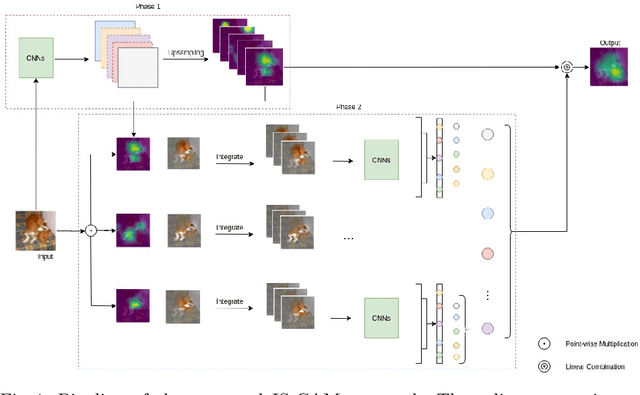
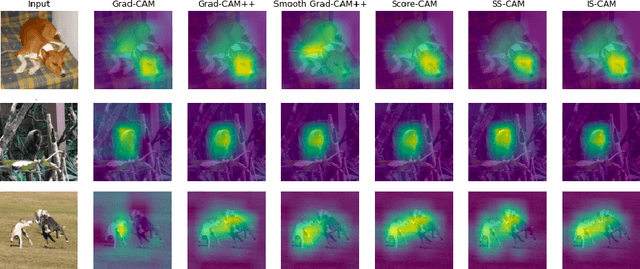
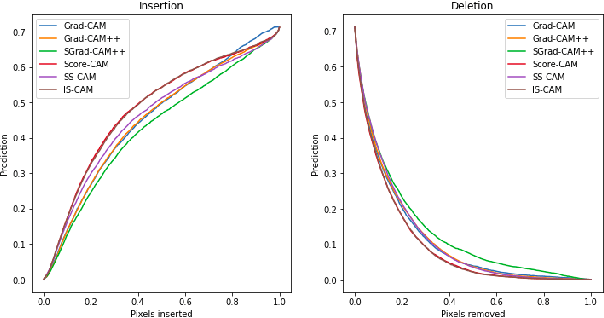

Abstract:Convolutional Neural Networks have been known as black-box models as humans cannot interpret their inner functionalities. With an attempt to make CNNs more interpretable and trustworthy, we propose IS-CAM (Integrated Score-CAM), where we introduce the integration operation within the Score-CAM pipeline to achieve visually sharper attribution maps quantitatively. Our method is evaluated on 2000 randomly selected images from the ILSVRC 2012 Validation dataset, which proves the versatility of IS-CAM to account for different models and methods.
 Add to Chrome
Add to Chrome Add to Firefox
Add to Firefox Add to Edge
Add to Edge